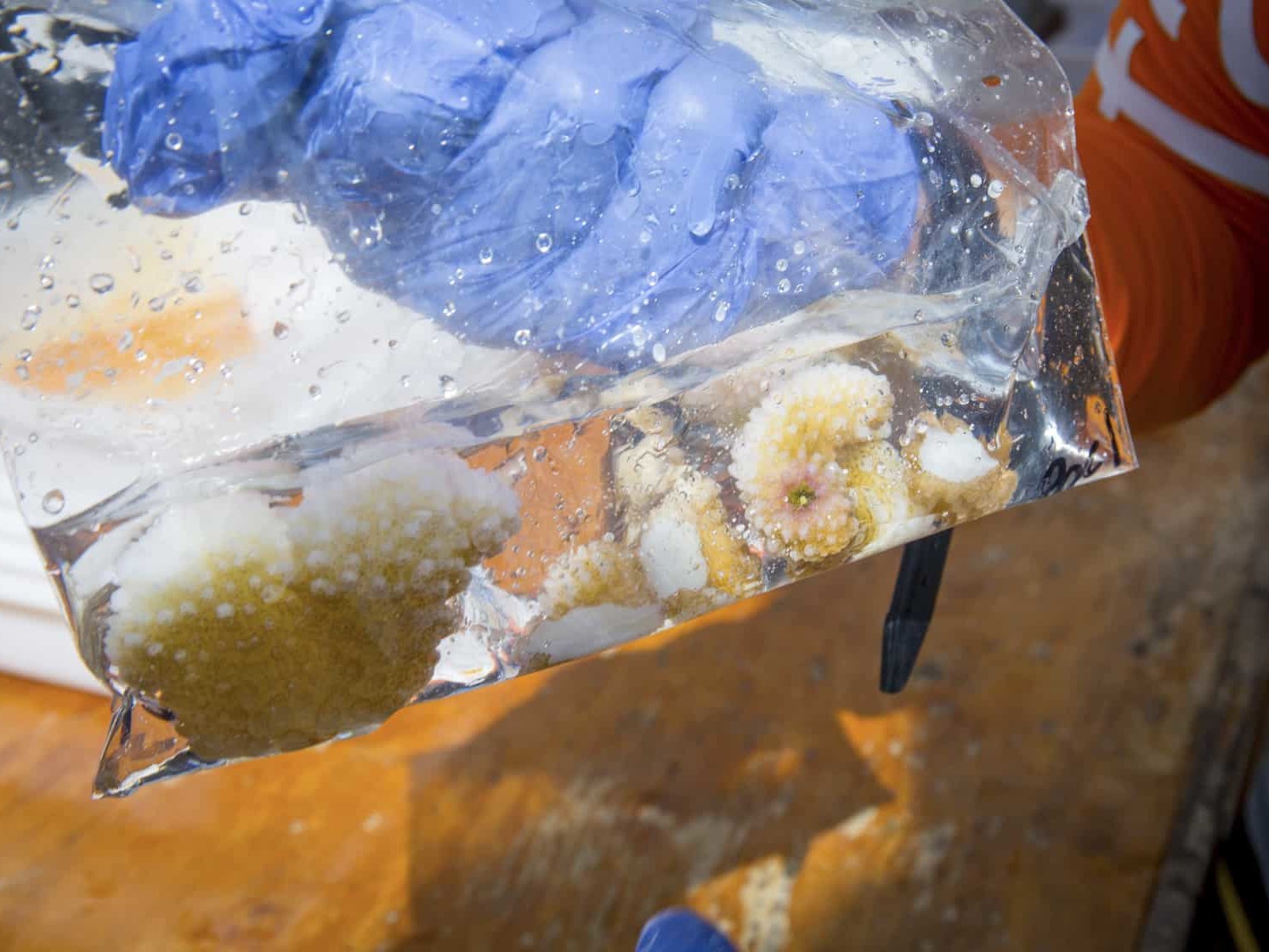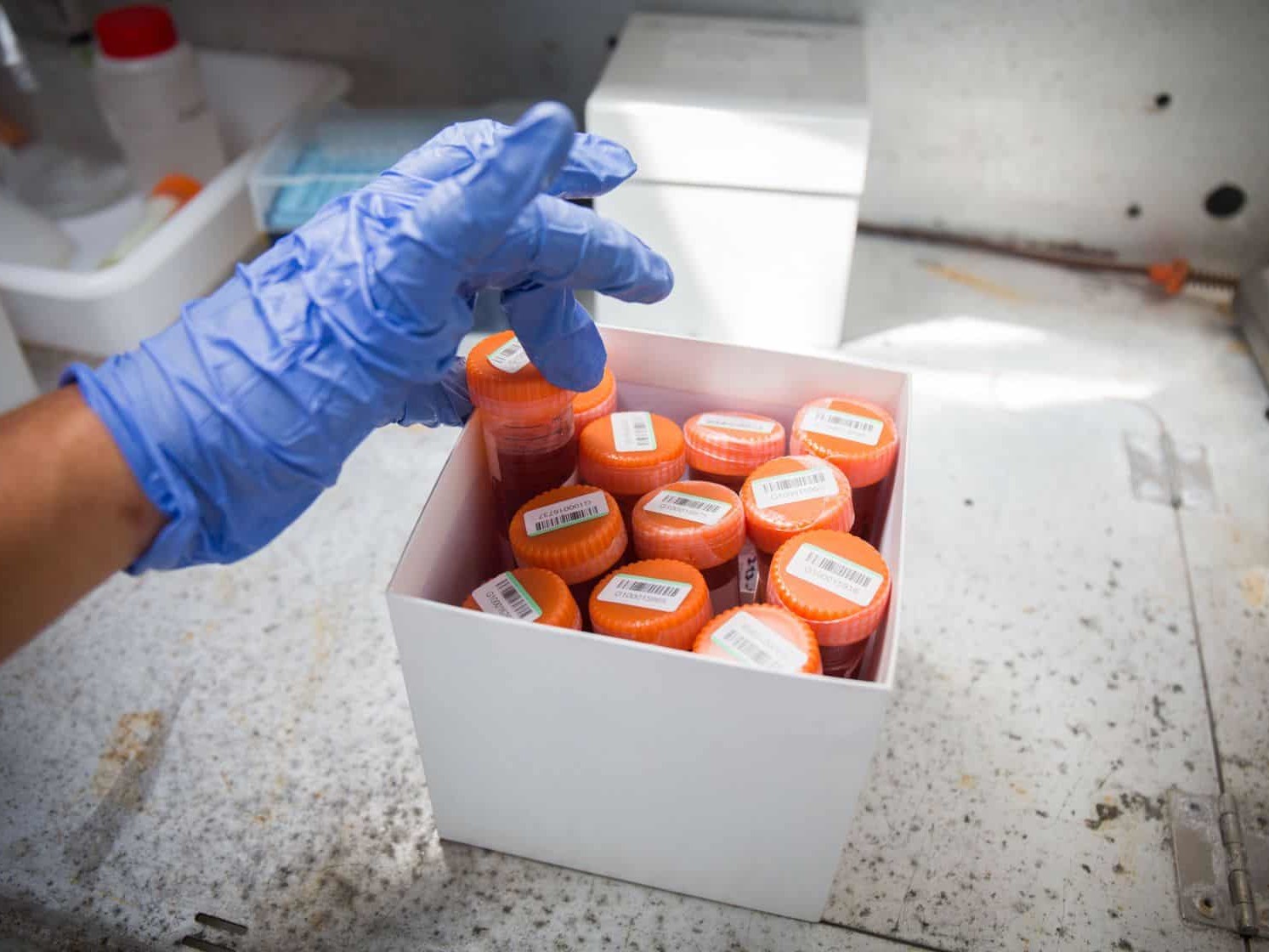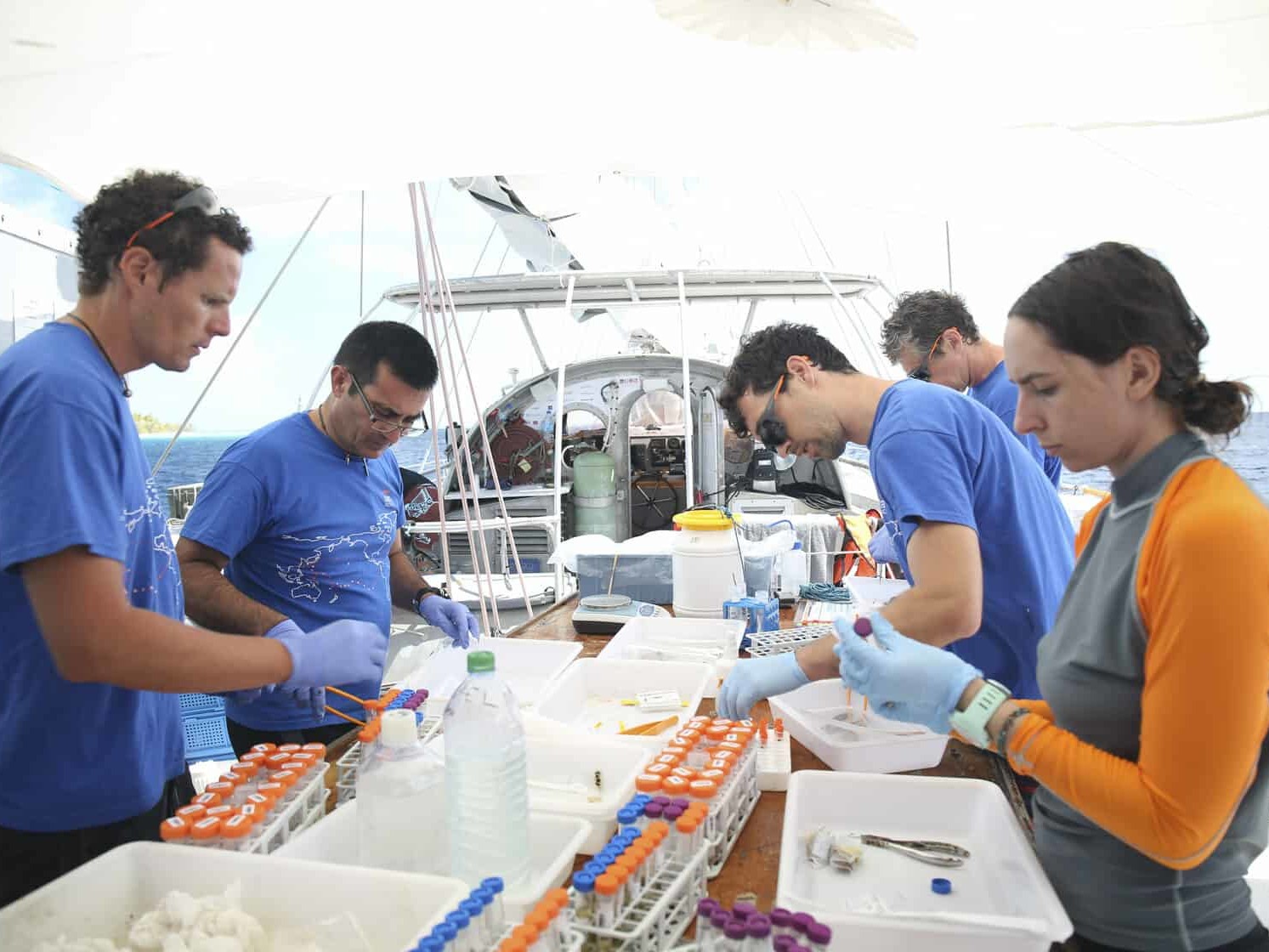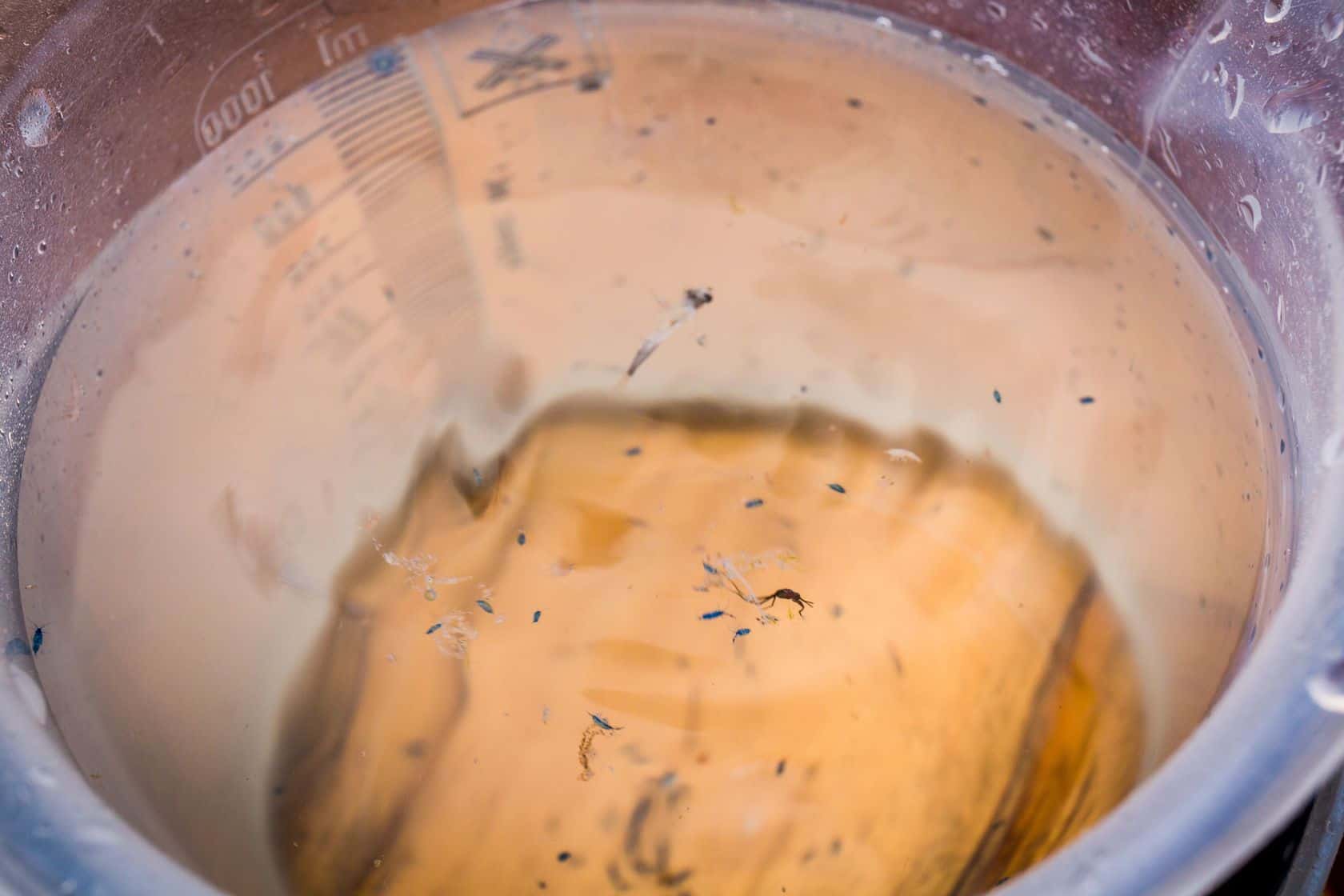4,000 nautical miles + 62 days + 6 countries + 1 legendary research schooner = Tara Expeditions adventures in the name of science.
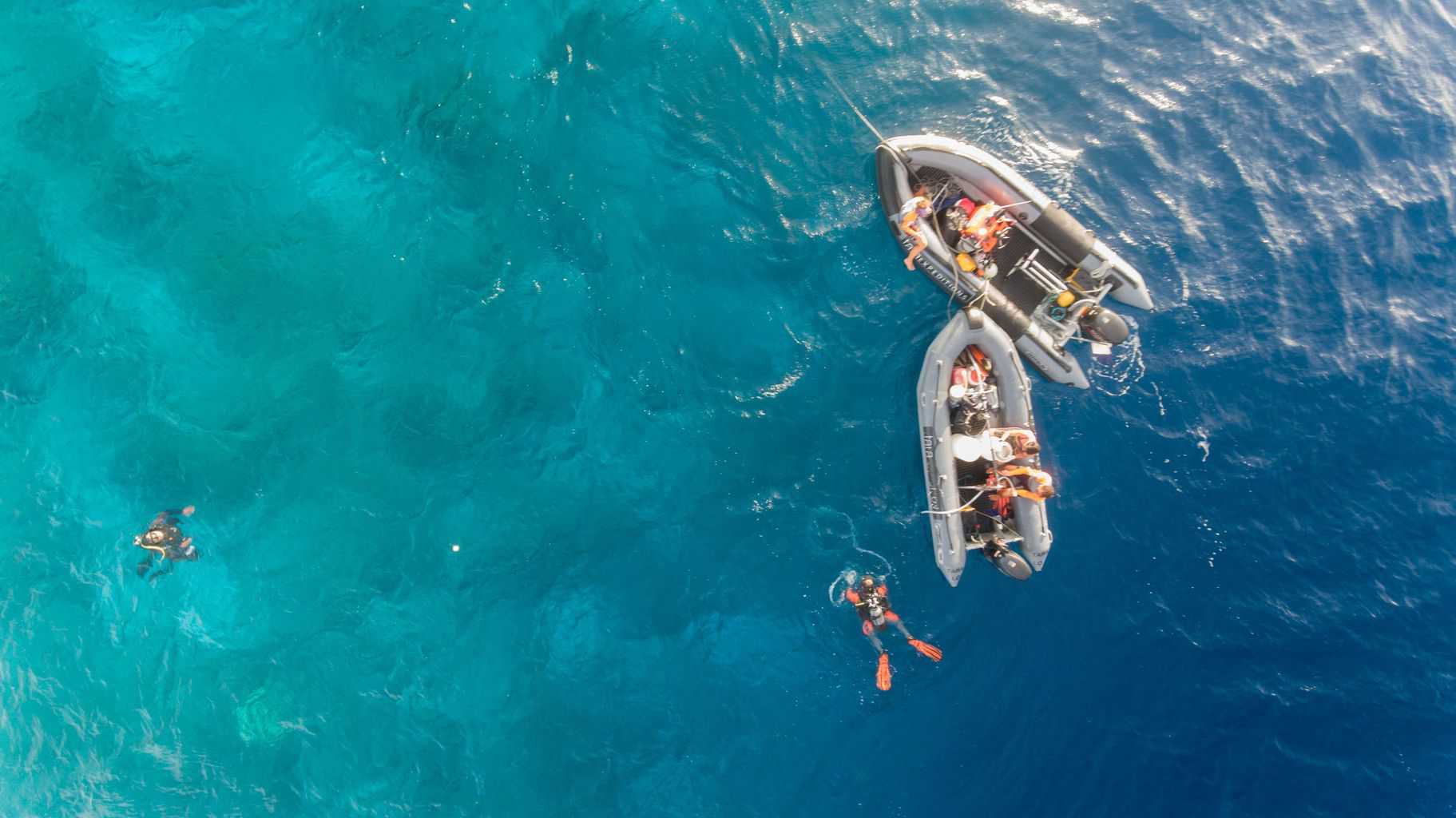
Coral reefs cover less than 0.2% of the ocean’s’ surface, yet they include nearly 30% of known marine biodiversity. Their health is crucial to the diversity of species, and also for humanity. Studying this fragile and endangered ecosystem is a priority since a large number of reefs have been disappearing in recent years.
– Tara Expeditions Foundation
Multimedia storyteller Sarah Fretwell’s journey with Tara Expeditions Foundation across the Pacific researching the fate of coral ecosystems in the context of climate change.
READ Tara Expeditions Part-I here:
Science is the priority, not my packed media delivery schedule for my boss in Paris. I must squeeze in my job to meet my deadlines wherever I can. It’s not a complaint, just reality. “Science First” is the boat motto. Most of the crew and scientists are very understanding of my position and grant me phenomenal access to their sample dives, wet lab, and night sampling. In most sample sites, they are finding conditions worse than anticipated. A few of the scientists lament they wish they could have sampled these sites years ago and how our children will not know coral reefs as we see them today. After sampling and processing, they answer my endless questioning about coral species, how I spell what they were working with in the lab, and their research findings. They understand the importance of their scientific findings being translated for a wider audience. After one site visit, German scientist Till Roethig tells me he just witnessed a scene that will forever be etched in his mind,
“ I could see vast areas of branching coral gardens – mostly dead – and every now and then a completely submerged palm tree rolling around destroying the remaining corals. I though so this is it, this is what climate change looks like. The effects of global warming taking the toll on the corals and rising sea levels taking it’s toll on the island” .
Always another deadline to hit, another story to prep, another photo to take, another problem to try to solve/opportunity to learn, another Google search to resolve an issue with the new video editing software that I am learning on the fly. The pressure of what I must do or figure out next is continually looming. The opportunity to use my skill set to be part of such a legendary mission for the planet coupled with the experience of a lifetime – is pushing me to my max on every level: body, mind, and spirit.
Overhearing the trials and tribulations of Captain Martin Hertau, who shares the seat next to me in “PC Com”, puts my job into perspective. He is always tracking down another CITES (The Convention on International Trade in Endangered Species of Wild Fauna and Flora) permit so we can legally take flora and fauna samples out of the country, reading another weather update, and answering
another phone call with the head office in Paris to discuss our intensely paced schedule. I witness his calm composure in the midst of endless problem solving as he is continually pulled in a million directions and try to follow suit.
Some days I’m so busy, the only time I interact with people is during the morning round of, “Bon Jour! Como sava?” To which the First Mate – ever worried about me learning useful French phrases – teaches me to respond in Parisian slang with a phrase I would never repeat in front of my mother. My “proper” articulation of this phrase always evokes suprised rounds of laughter. No matter how busy or stressed we are – there is always time for a joke. It’s getting to the point where I am. It sure who to take seriously. After dinner one evening, I walk down the hallway past the shower door that has screen slats for ventilation, I overhear the chief engineer pretending to be a priest inside a confessional as the First Mate says, “Bless me father for I have sinned”. A few days later, I am told in a very serious tone, “Sarah, this is not Versailles!” as the Chief Engineer grandly sweeps his arms towards my cabin where either myself or my roommate has accidentally left the lights on – again. I now know what it is like to live with 12 brothers who tease you endlessly.
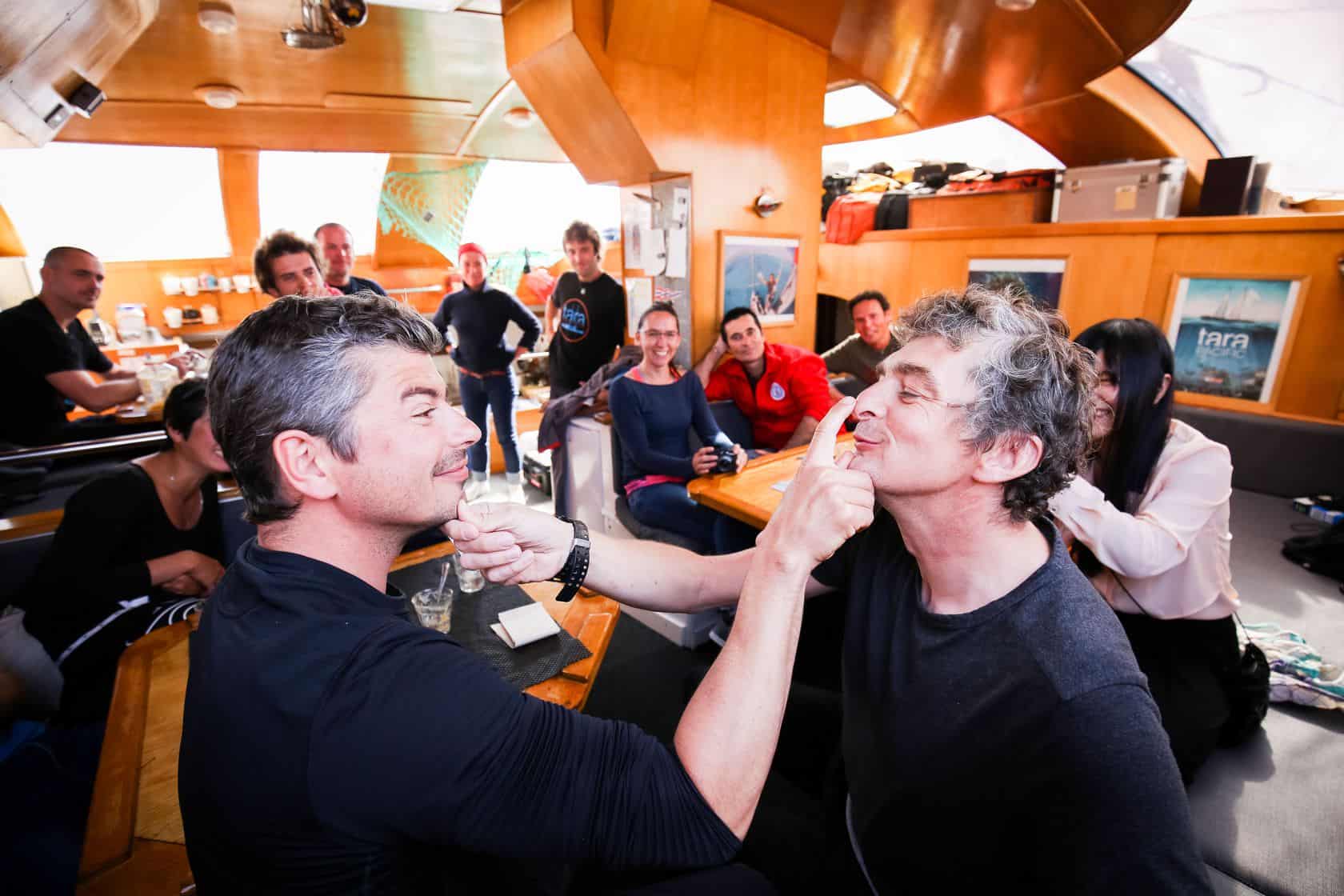
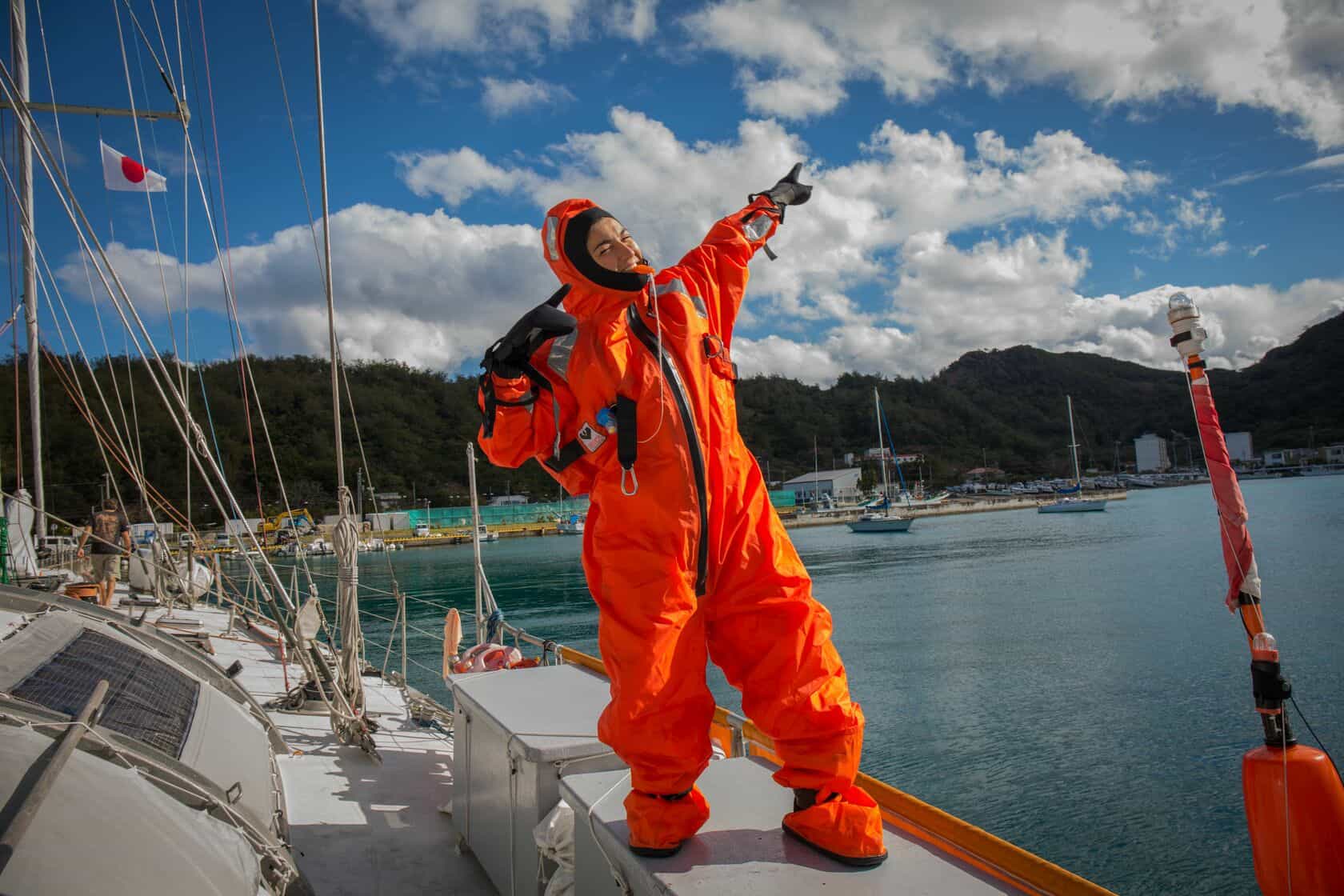
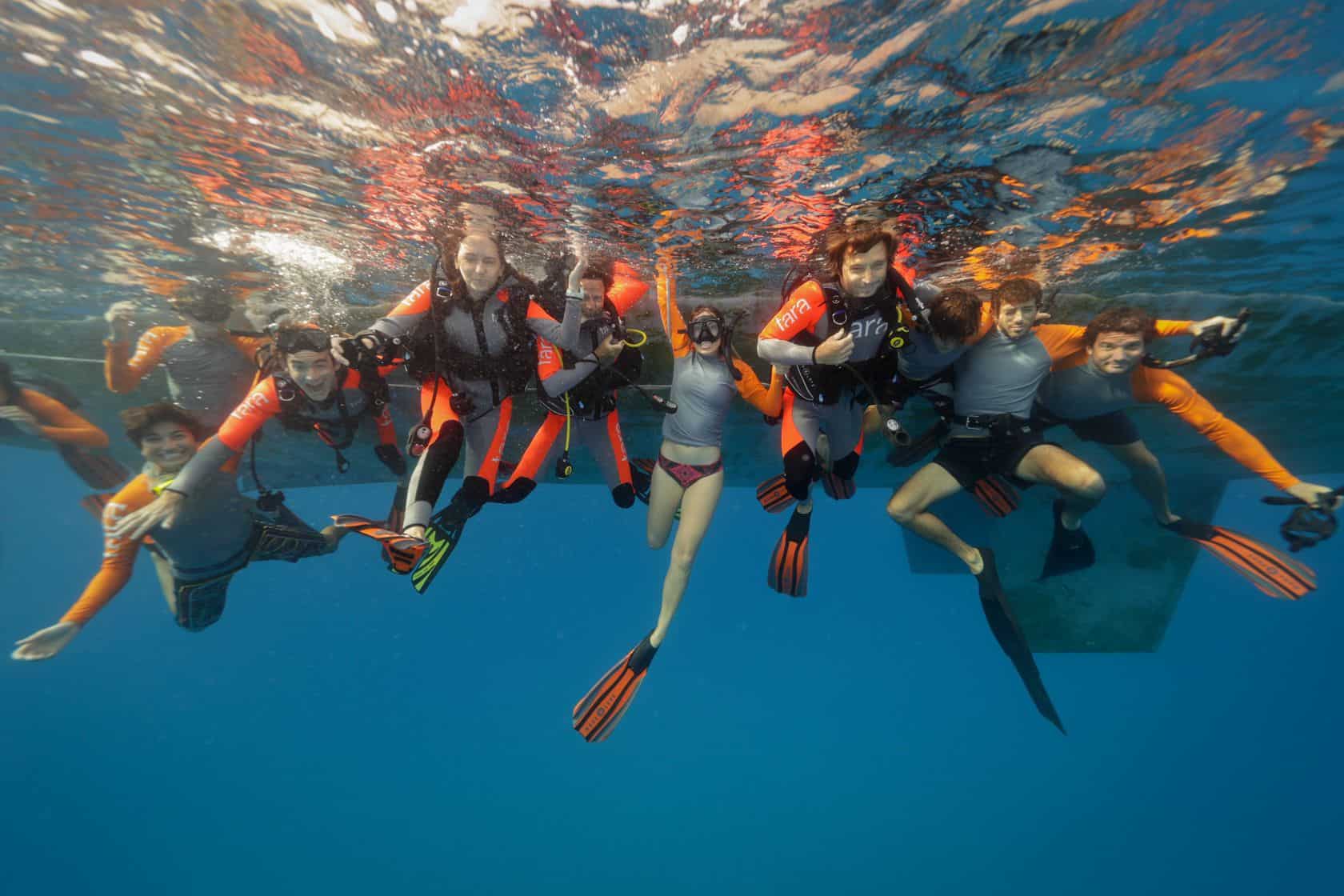
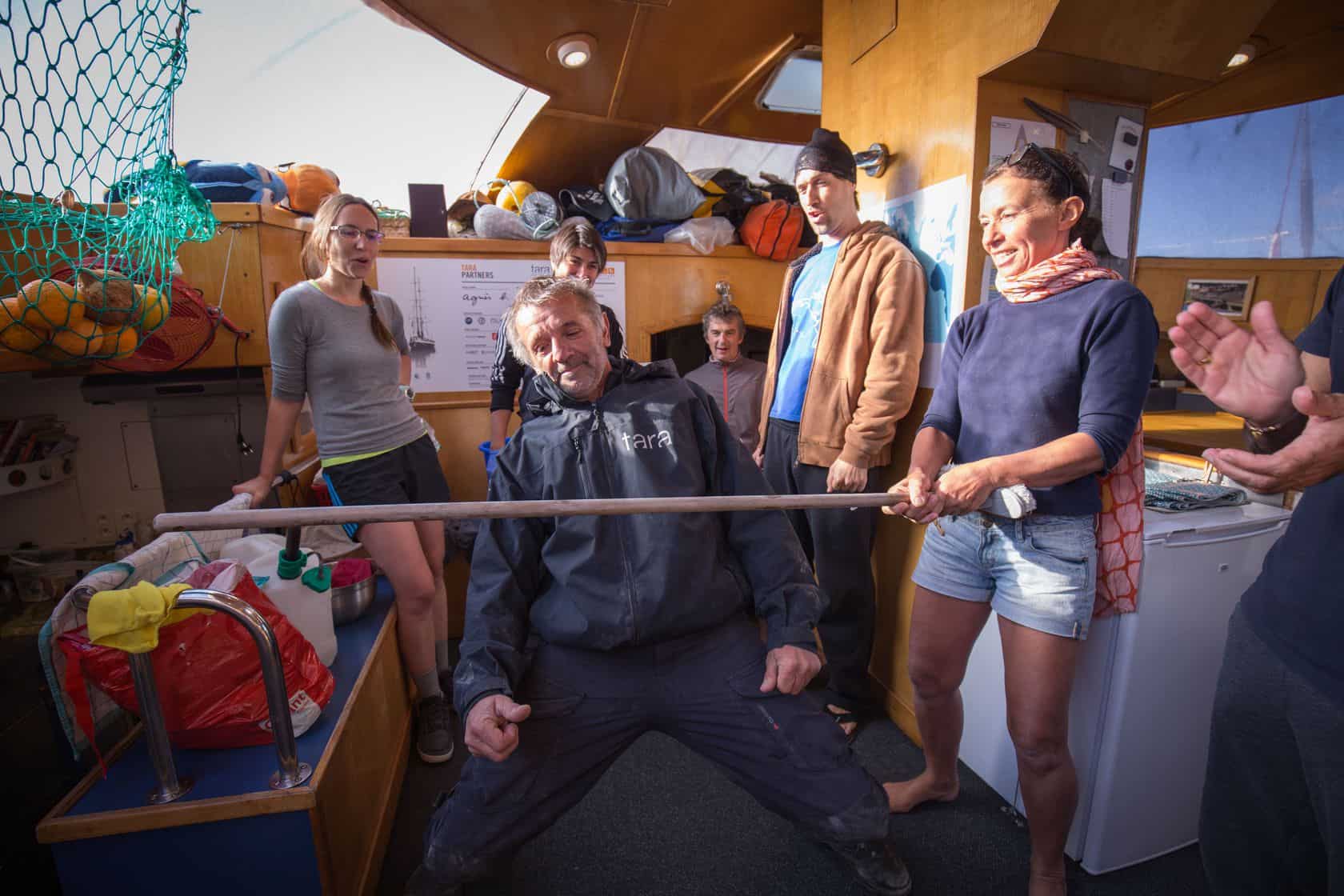
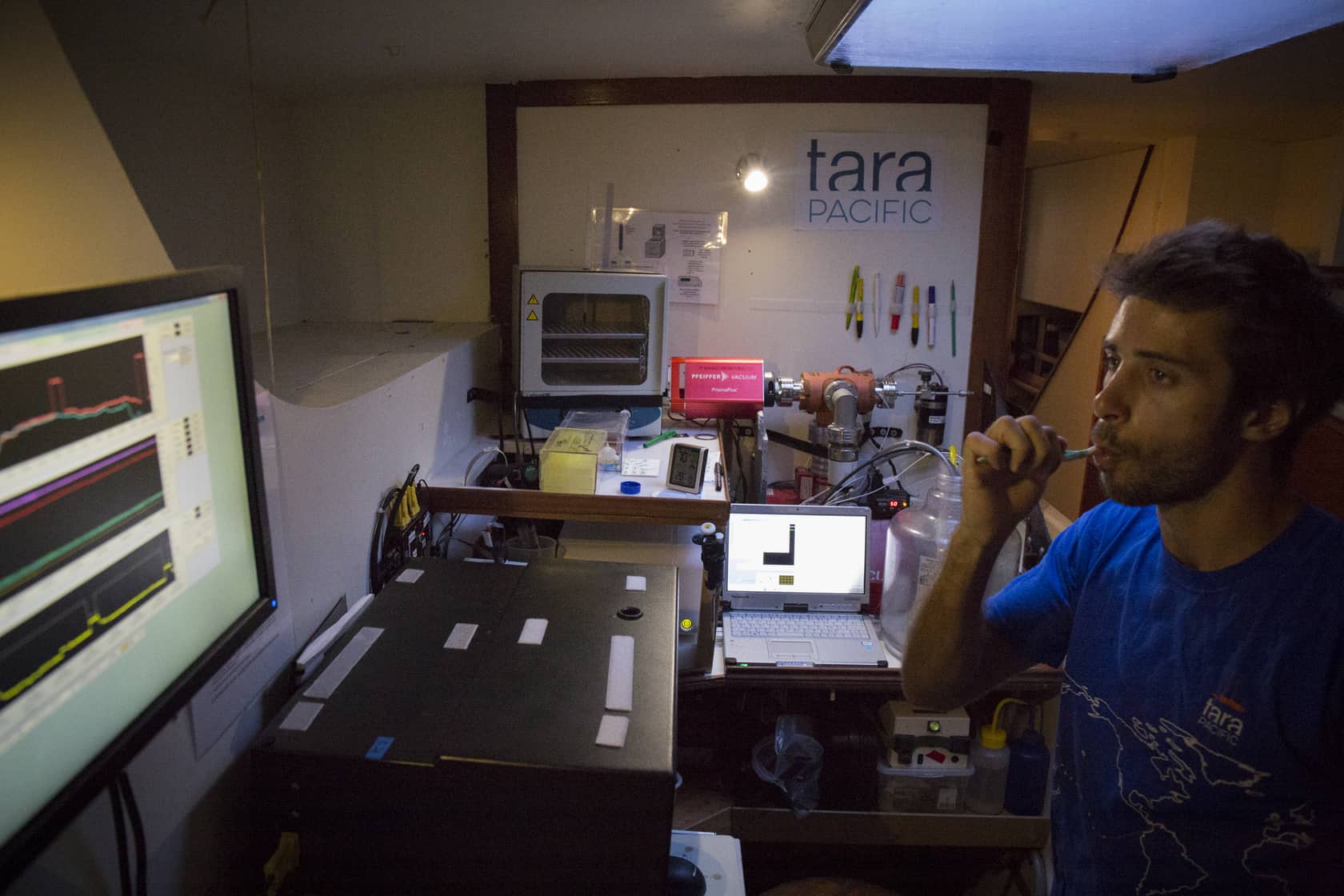
Lunch and dinner are the few times each day when almost everyone sits down together to eat, socialize, and laugh. Even though five people are vegetarian, most of the meals are predominately white starch and meat-based. As a “health nut foodie,” obsessed with farmers markets, juicing, and superfoods in my normal life, I anticipated the food options would be limited. At first, I am gracious and okay with it. I supplement with the small Patagonia black hole duffle bag full of almonds, bars, and dried fruit I brought with me. But when the snacks run out
(and I have lost +20 lbs), I scavenge every grocery store on land to find a carrot, an apple, an orange, or any other veggie that is not dead, frozen, or processed.
It is technically a “dry boat,” but the reality depends on the Captain. He decided that we can have alcohol two times a week and on special occasions, which sometimes means Apéritifs on the deck Sunday night and on another evening. Some weeks, with birthdays, new crew, and other events it means four days in a row. I am convinced there must be a champagne cellar aboard I have not yet discovered. These are one of the only times, outside of mealtimes, most of the boat stops to relax and socialize. They are treasured moments where, while many of us still have deadlines and obligations to go back to, we can be present with each other for a moment in the warm breeze of the tropical evening as the sun sets. The aft of the boat serves as the scientific wet lab where coral, fish, and plankton samples are processed. It also doubles as our banquet table when we eat outside. Twice, on Christmas Eve and New Year’s Eve, the evenings culminate with epic dance parties under star-filled skies and a torrential rainstorm – and midnight swims in the warm ocean.
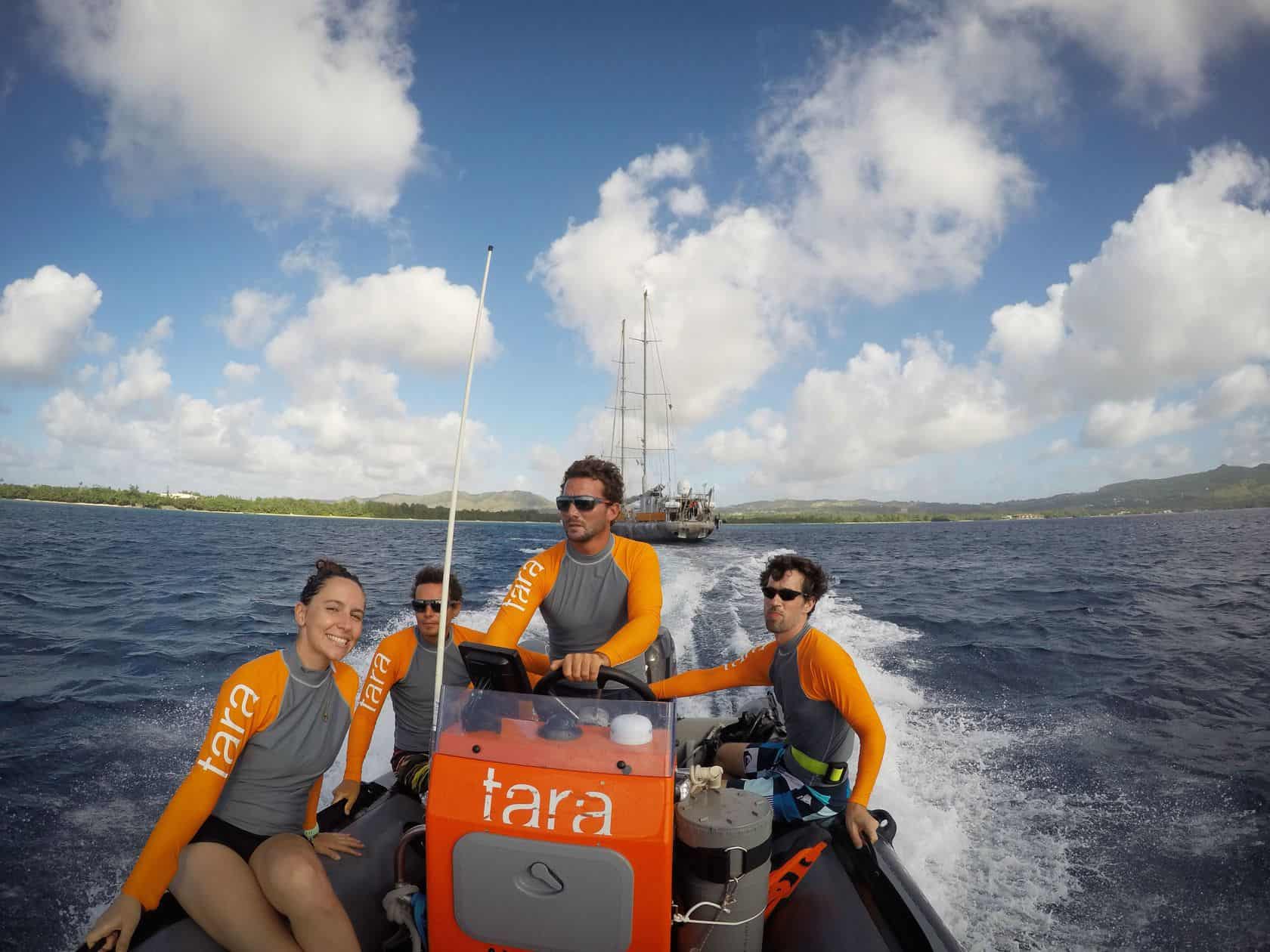
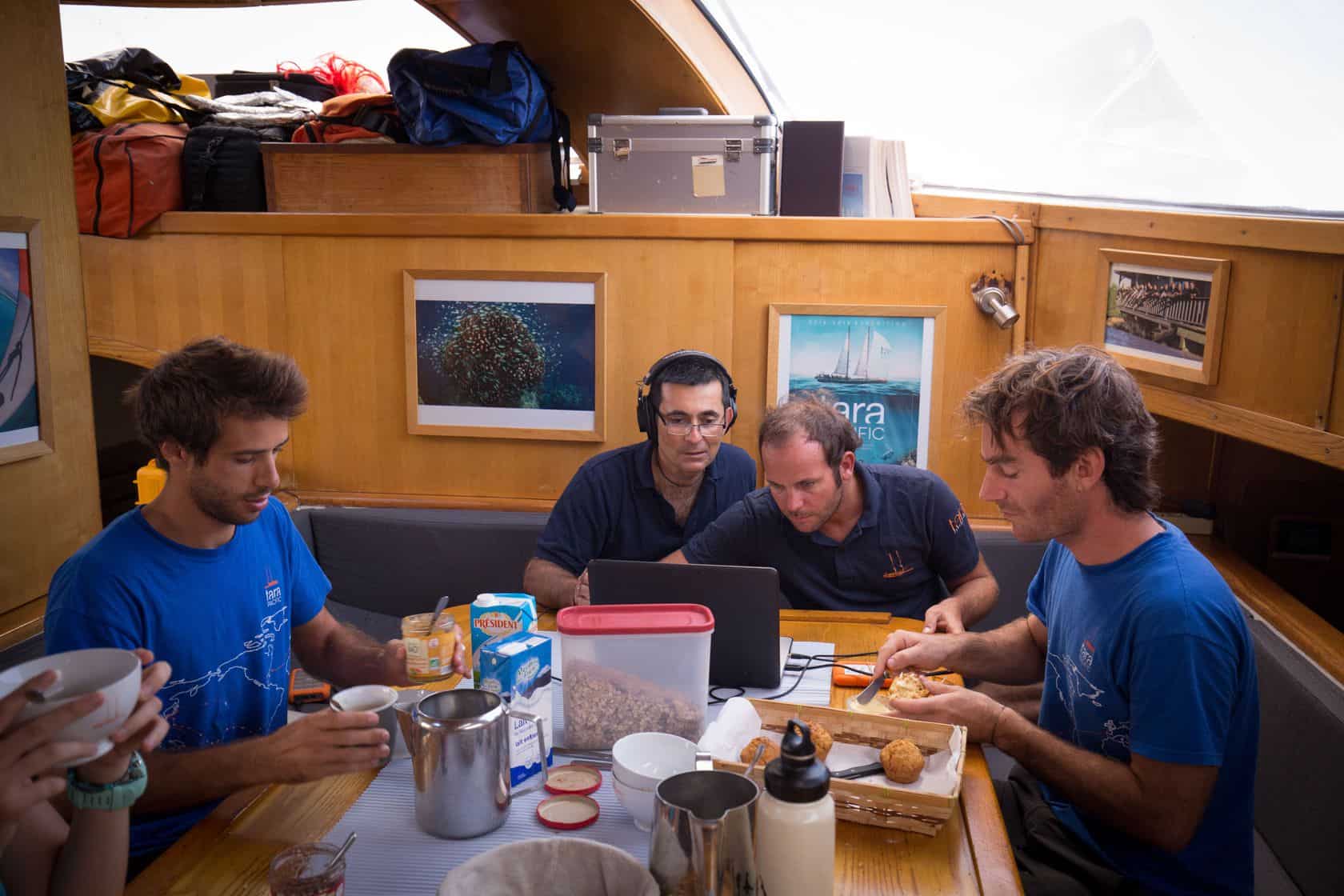
Some days, my life is extremely active and exciting. One 24-hour period was as follows: 2 pm we took a 5-mile bone-slamming dinghy ride to the GPS coordinates I found in a scientific journal to a WWII shipwreck. We did squats for an hour each way so we wouldn’t get body slammed when the boat hit the choppy sea. 3:30pm dove the shipwreck (one of many) that is leaking oil into Chuuk Lagoon and still has unexploded ordnance aboard,
5pm moved the boat to the research site for the morning (I downloaded and edited footage as fast as I could while on very high and choppy seas), 6pm edited and then emailed photos of the day to our partners all around the world, 8pm ate dinner, 10pm to midnight I had security night watch because there are bandits in the area who will rob you with their spearfishing guns, 1am went to bed, 6am woke up at to photograph the coral team as they went to go scout a location, 7am stove top espresso, 8am jumped in the water for a morning swim around the boat, 8:30 am edited interview with Prime Minister of Tuvalu talking about climate change, 11am did an underwater photoshoot with the plankton scientists/team for the Tara website – swam with jellyfish and plastic waste floating in the water, 1pm came back to Tara flew the drone (video/stills), downloaded everything, edited video again. By that time it is 2pm and there are still at least 5 more hours in my work day.
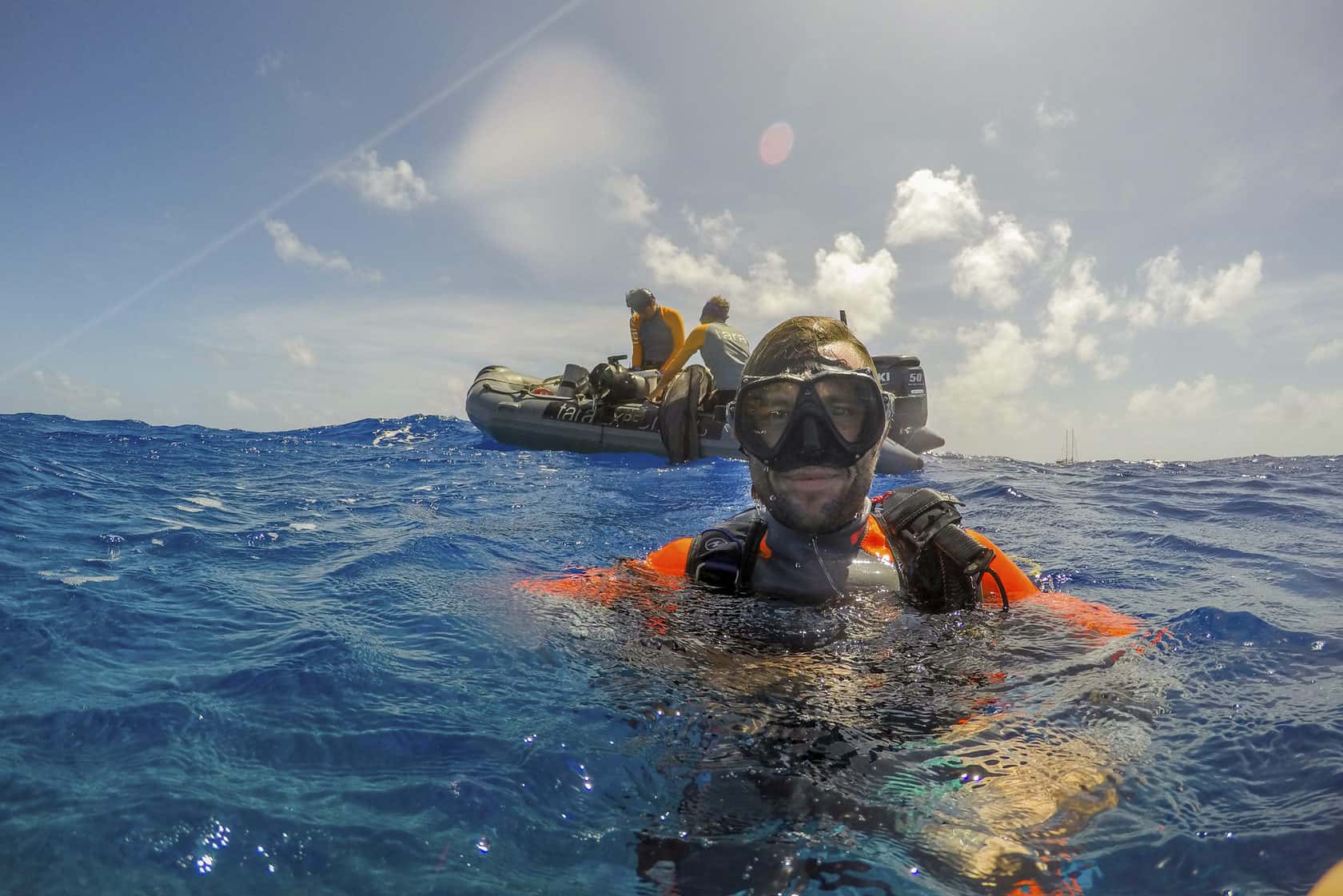
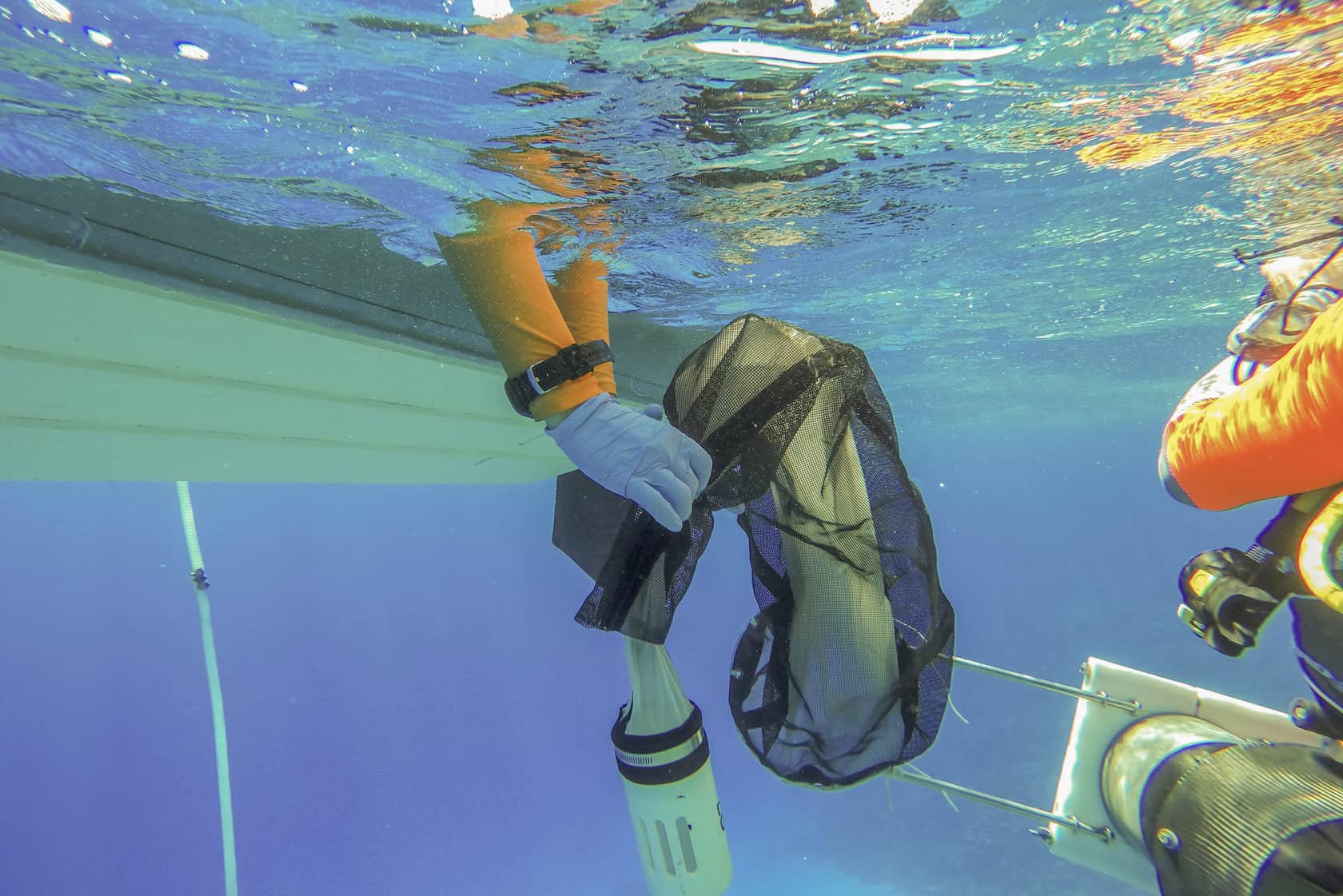
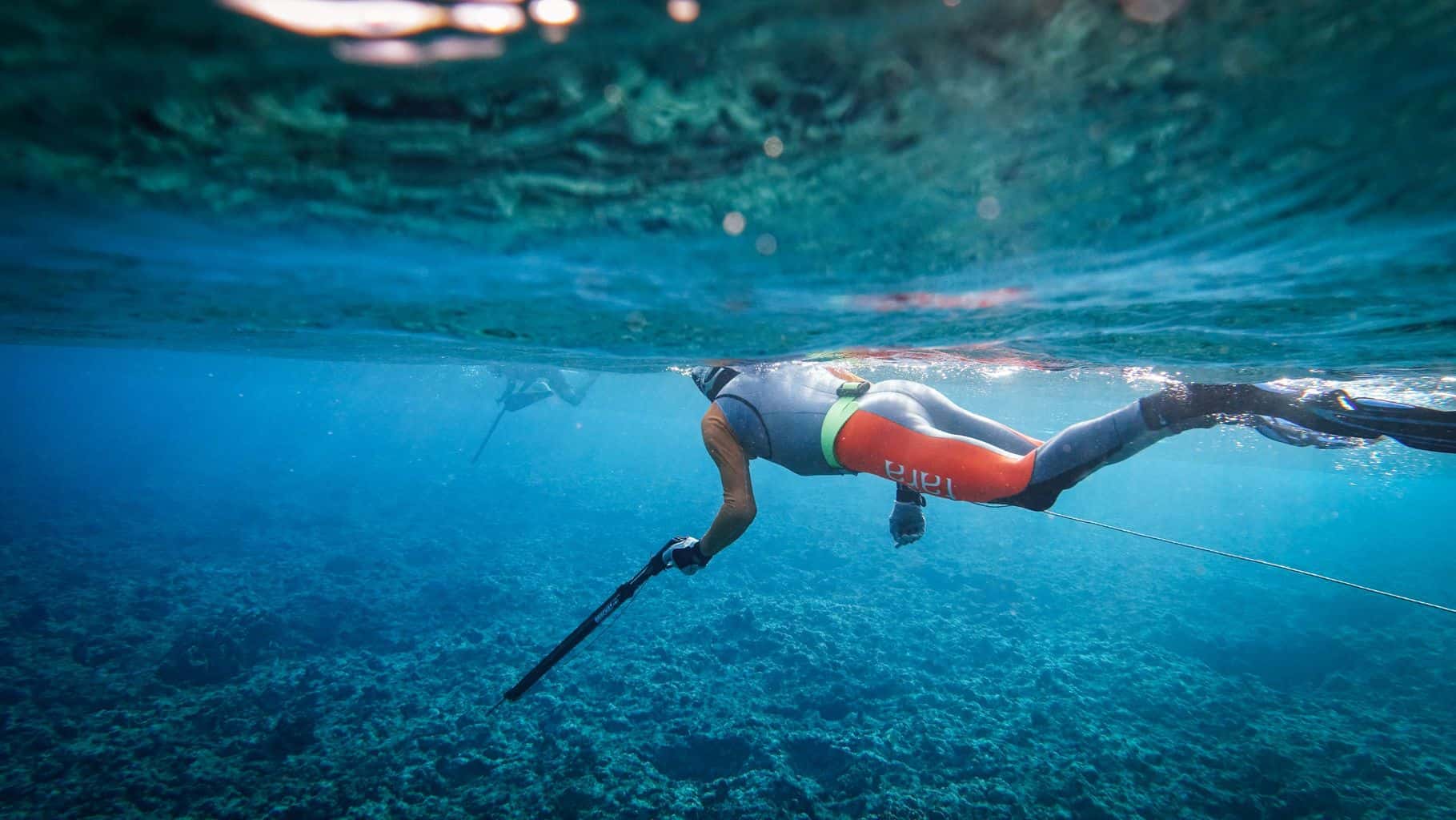
Other days, the daily routine aboard is monotonous. There is a strict protocols for the scientific samples which must happen over and over in each location. I challenge myself to find a unique perspective and new camera angles as I see the same sampling taking place over and over. Sometimes it is a delicate balance of egos so all the scientists and crew feel they are ending up in enough photos. To be fully honest, I am happy, but exhausted on every level. I simultaneously, anticipate the moment the pressure of another deadline is not looming ahead and mourn the loss of photographing in the crystal clear aquamarine blue waters as scientists collect their samples.
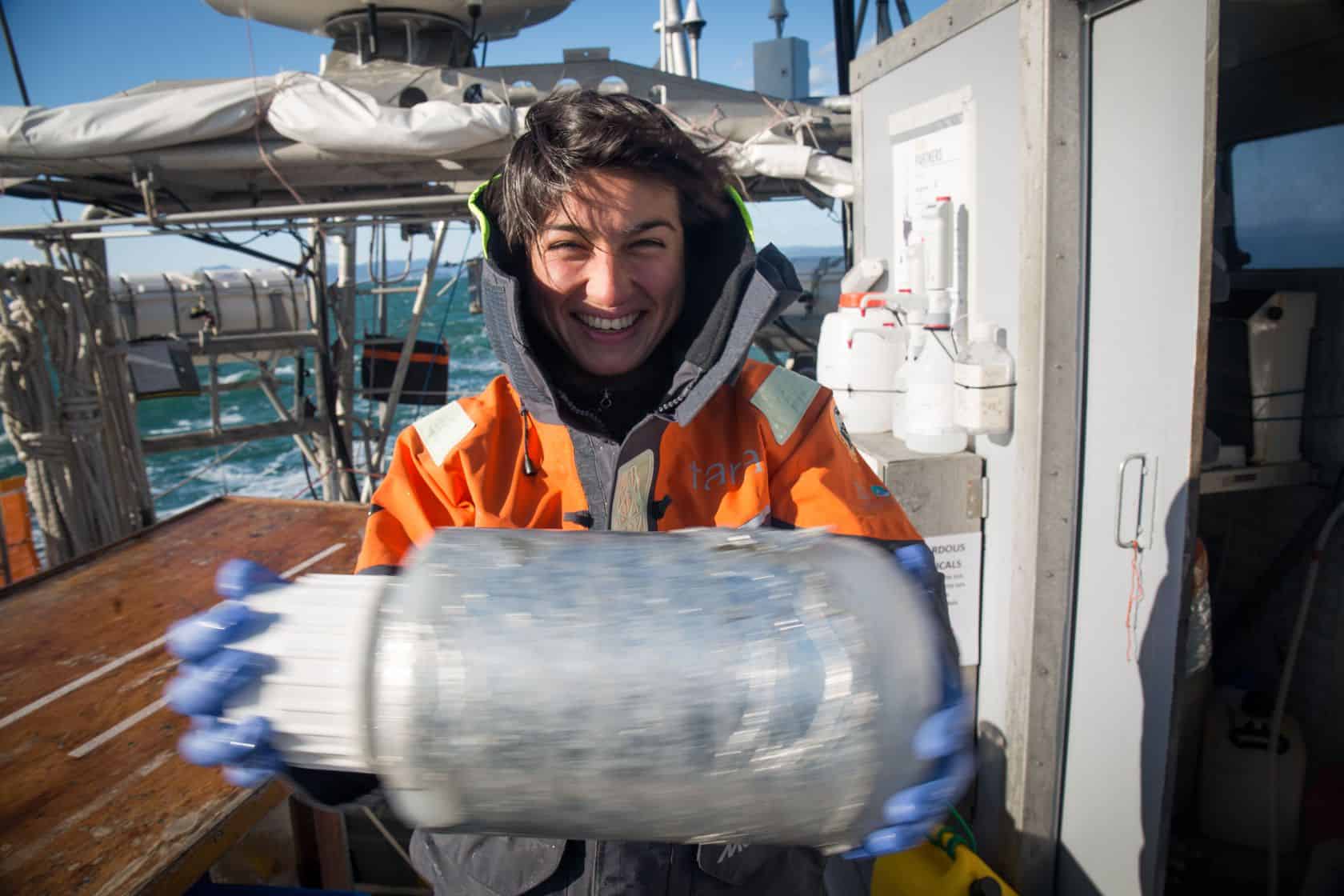
As fate would have it, when the boat arrives in mainland Japan I am greeted with an enormous hug by the same French girl (now my good friend Clementine Moulin), who connected me to what will one day be a legendary coral research expedition that pushed the limits of science. A stranger passing by happens to capture a photo of us and posts it on FaceBook.

On my 62nd day aboard, the time had come, to leave what had been my safety net for 4,000 miles across the Pacific and 6 countries. Taking my bags from the boat, but this time not knowing if or when I will return, is surreal.
For the next three days, I am feverishly laid out in a Japanese Ryokan room at a national park outside of Fukuoka trying to process the amount of life experience I just lived at a whirlwind pace.
I am so grateful for a French fashion icon I have never met – agnès b – whose brand is the major sponsor for Tara’s human and scientific adventures.
I am so grateful for her family’s passion for the ocean, their and numerous sponsors funding of such progressive science, and the foundations committed understanding to the importance of translating scientific findings through art and journalism – even if their findings were published on 10 scientific journals in one year!.
I am so grateful there is a office full of people in Paris working tirelessly so we can accomplish our mission,
I am so grateful that Tara Expeditions Foundation is elevating environmental consciousness for generations to come.
I am so grateful these factors translated to me working as Tara’s onboard correspondent with incredibly accomplished scientists/crew/artist/underwater cinematographer from around the world.
It was an honor and pleasure to share this unparalleled access to scientific research and life adventures with 19 strangers and work on a project of such importance to the planet.
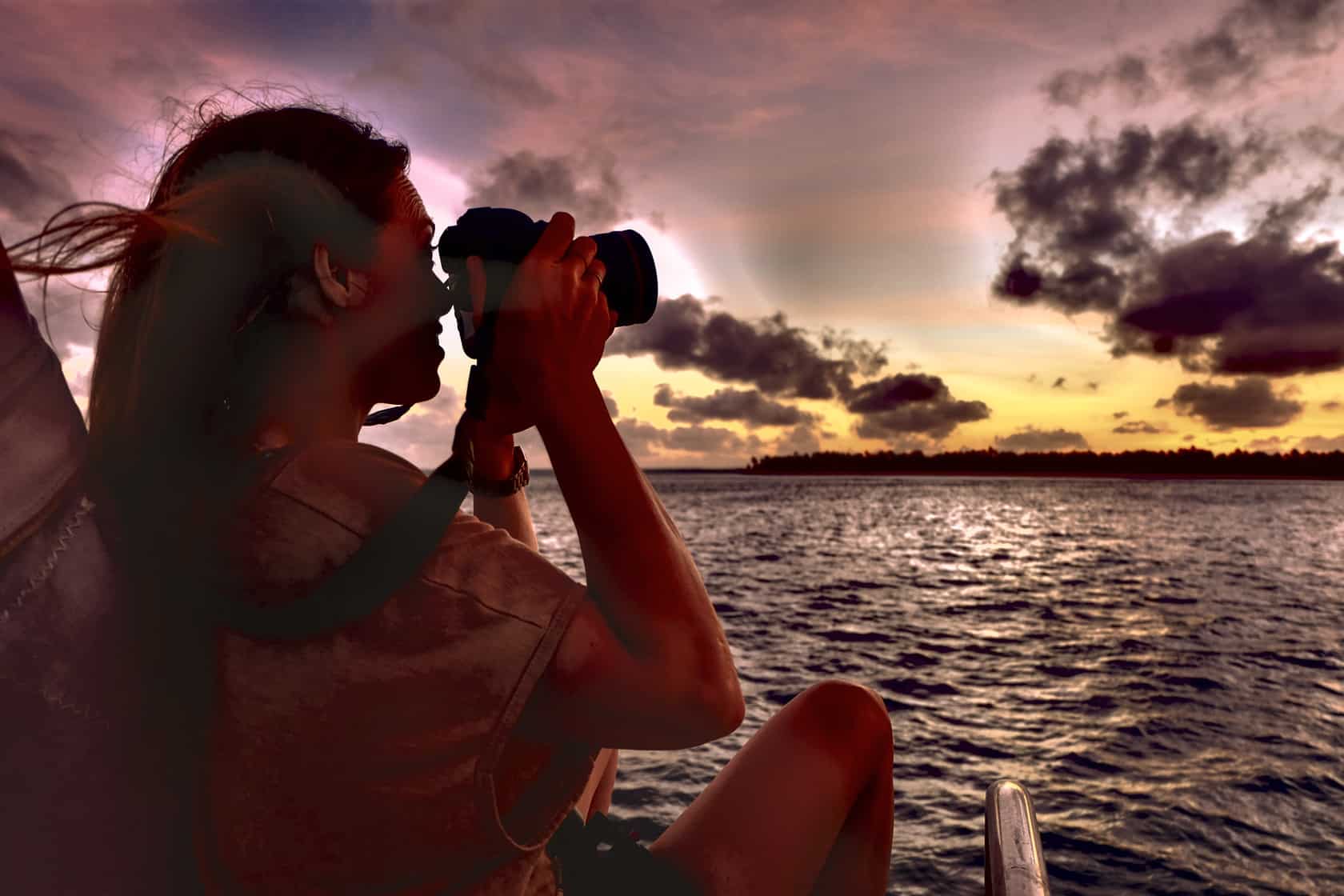
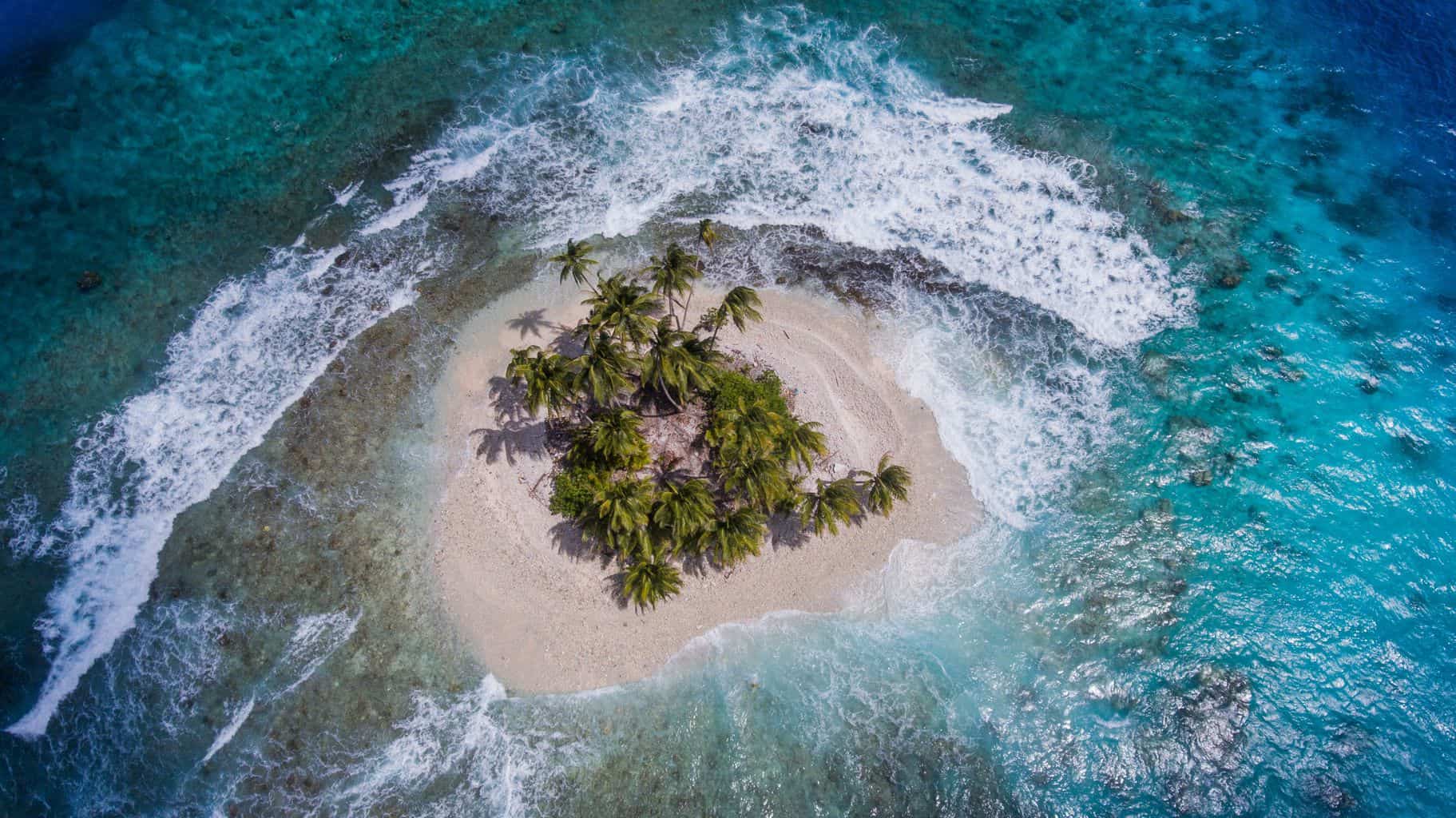
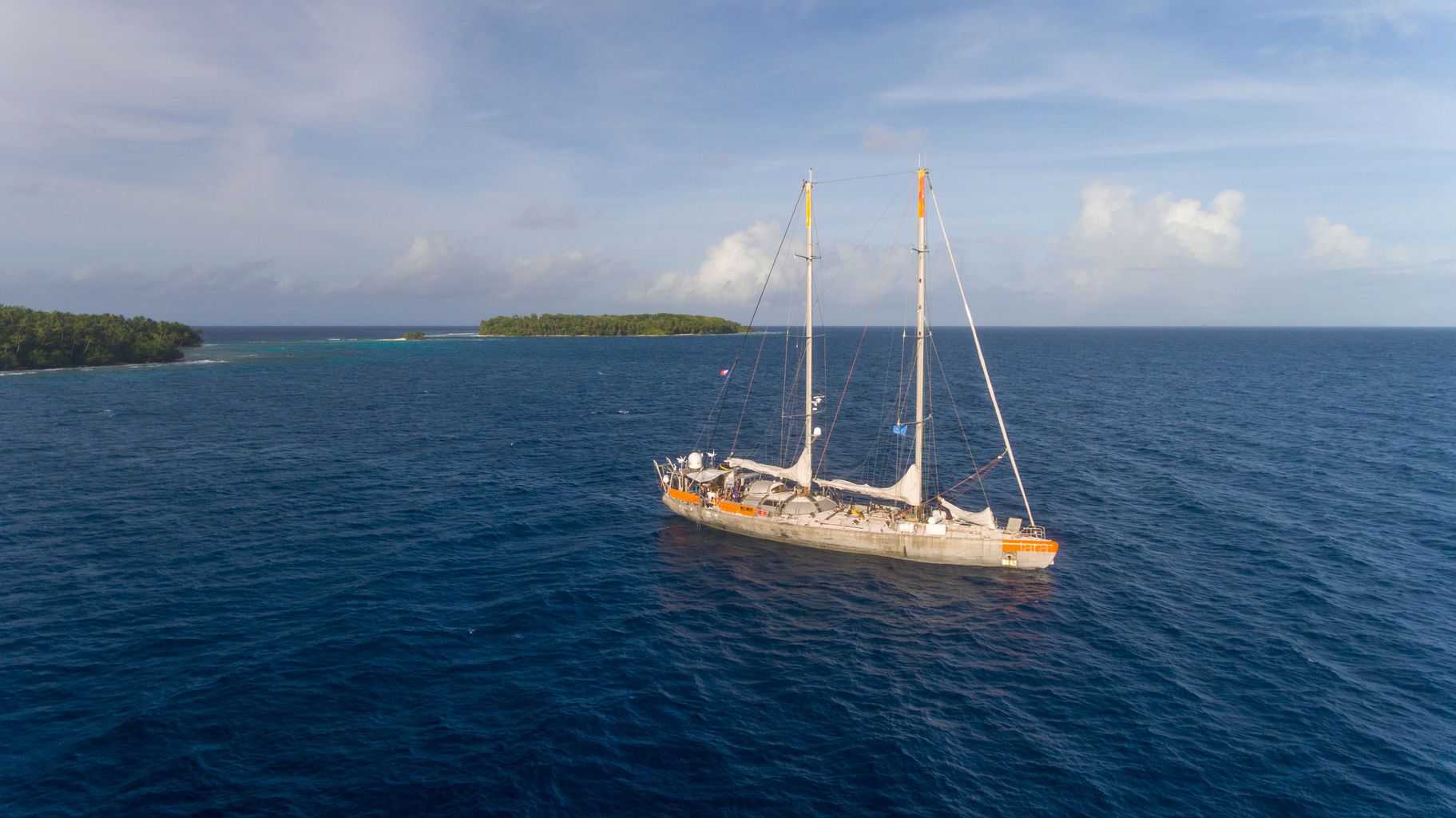
After my gushing gratitude round, I determine that I am too sick from an infected coral wound/blood infection and my foot too swollen, to put on the snowboarding boots I was planning on wearing in Hokkaido. I imagine my dream trip home: rest/raw food/yoga/meditation/surf in Bali (let my foot recover) and a stop in Bellingham, Washington – the place of my birth – to snowboard with my best friend. A voice inside my head says, “that’s impossible”. In a moment of lucidity,
I return to my favorite Marianne Williamson quote, “Nothing binds you except your throughs, nothing controls you except your fear, and nothing limits you except your beliefs.” Yes. I can find a way to do it if I really want to. I email the travel agent and reroute the trans-continental ticket for an unheard of 313 Euro deal. Two days later, I return to the same balcony in Bali to see what other magic will transpire…

